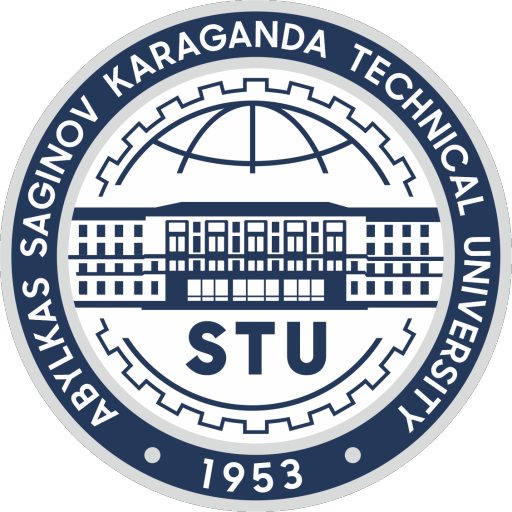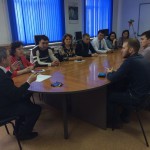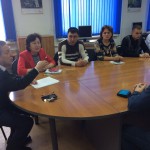Department Mine Surveying and Geodesy annually holds meetings with graduates to discuss issues of educational, scientific and industrial nature before the fair of the graduates. In the framework of the competence approach on professional training of specialists, in accordance with the implementation of SPIID program, department considers development of students’ skills and abilities to solve professional problems of innovative character in terms of production one of the most important directions.
The main innovative direction in the training of surveyors, geodesists and cartographers is the study of terrestrial and space methods of filming. The use of laser technologies at the mining and metallurgical complex to create digital models and then use them to solve geological, geotechnical and technological challenges is an important direction. The Department has the most modern equipment in the field of geodetic instrumentation, which is used in the educational process and the execution of contractual issues.
Under the direction of the head of department Mine surveying and Geodesy, professor Nizametdinov F. K. the graduates, who currently hold responsible positions in mining enterprises: Tolysbayev A. K. – head of the geomechanical service ‘Kazakhmys’ LLP, Tokkuzhin E. N.- engineer of mining engineering service ‘SSGPO’ JCS, Kozhemzharov A.D. – engineer-geotechnic of ‘AltuntauKokshetau’ JCS, Dosanov E.A. – leading specialist of the Balkhash processing factory of ‘Kazakhmys’ LLP and students of GiK-14-3: Moldybaeva D., Polikarpova T., master students of the 1 course of the group Met-16-2: Dorosh N., Kulygin D., the faculty of the department, associate professors Khmyrova E. N., Beysembayeva O.G., Oleinikova E.A. took participation in the round table.
The discussion tasks were identified, which are based on the training of competitive specialists in the field of mine surveying and geodesy, with the guarantee of their demand not only in Kazakhstan, but also abroad, and the training of highly qualified specialists of geotechnical service in the implementation of SPIID-2 as well.
To complete the tasks, the participants of the round table made an agreement on close cooperation in the educational process: carrying the industrial and pre-degree practices out in the workplace; the joint solution of research tasks and concluding commercial contracts; education of engineers of a new formation based on the study of global development trends.
Elena Khmyrova


